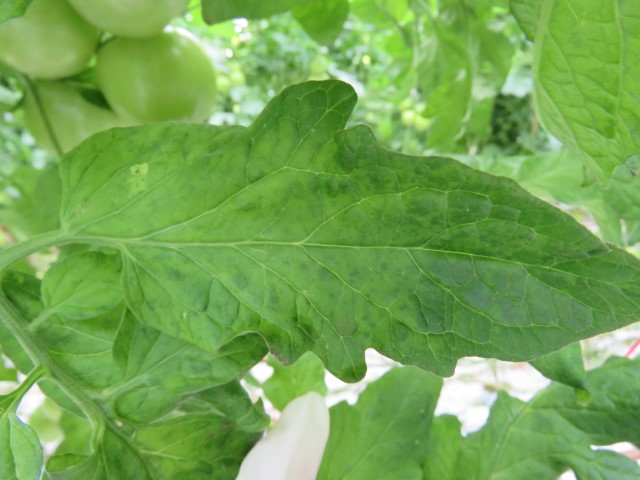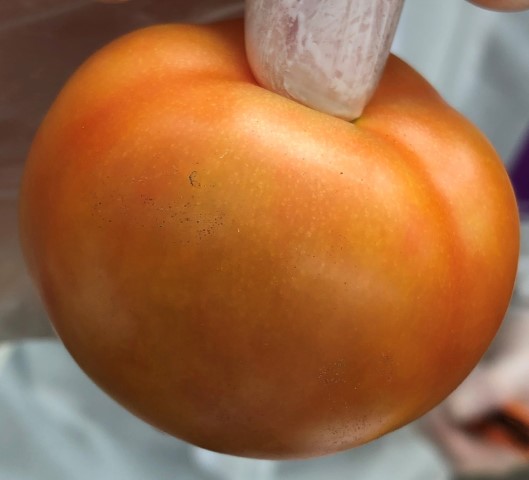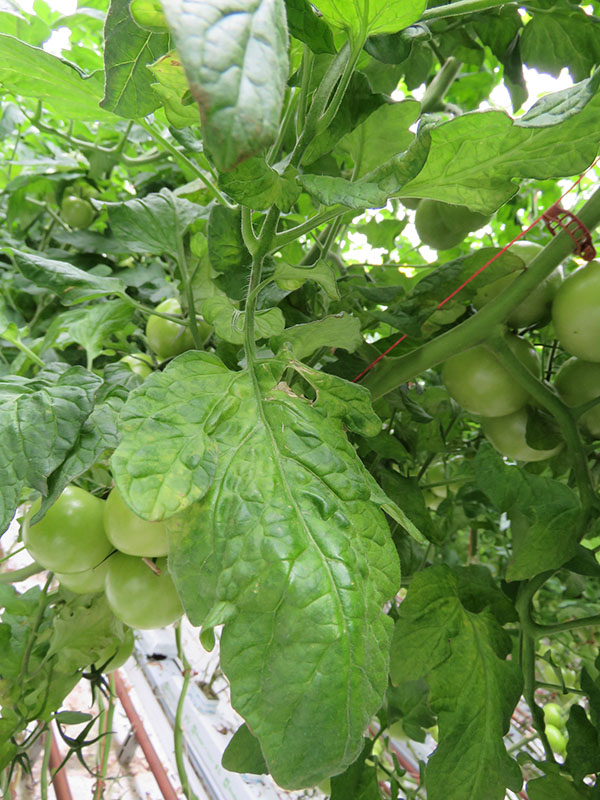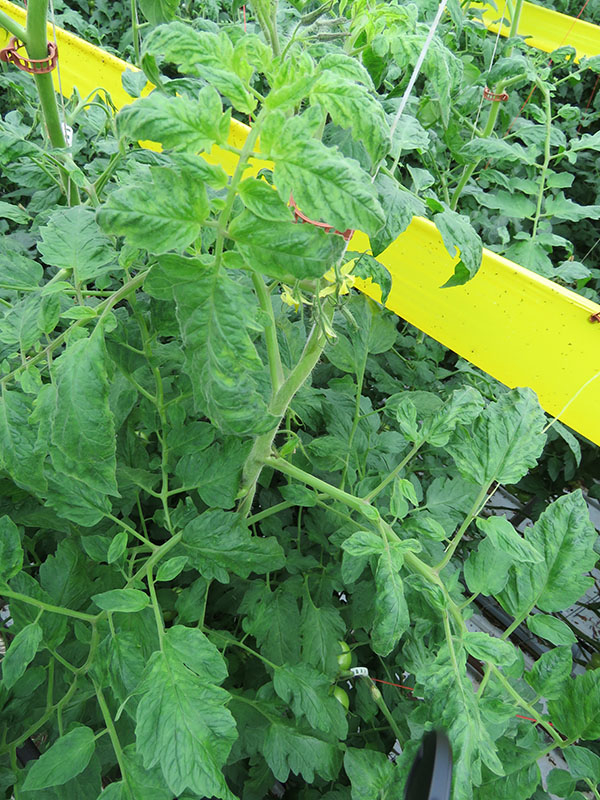About PepMV and the damage it causes

This virus can cause pepino mosaic disease in tomatoes and some other solanaceous plants including potatoes and eggplants.
While the disease can affect production, it has no impact on food safety or human health. Tomatoes are still safe to eat.
Signs of PepMV
Affected plants can show stunted growth or symptoms resembling hormonal herbicide damage. Leaves around the 'head' of the plant may show dark spots and distortion. Lower leaves may have brown, necrotic lesions.
Other leaf symptoms may be yellow spots which later develop into bright yellow patches on the leaf and ‘bubbling’ on the leaf surface.
Fruit can appear 'marbled' and this may be more readily seen on large red tomato varieties.
How the virus spreads
PepMV is spread on seed, stalks, and leaves and through plant to plant contact and propagation. It is also transmitted very easily on contaminated tools, hands and clothing. Bumblebees used as pollinators are also known to spread the disease.
While the virus can be detected in the fruit itself, the risk of transmission of the disease through selling fruit is considered low.
What you should do about PepMV
Commercial growers are advised to closely monitor their crops for signs of pepino mosaic virus (PepMV).
Report suspected cases immediately to Biosecurity New Zealand – freephone 0800 80 99 66.
See more pictures of affected tomato plants
Practice good biosecurity measures
- Cleanliness is needed at all stages of crop production.
- Keep good records of who has been in glasshouses and when.
- If possible, assign workers their own personal protection equipment (PPE), tools, carts and the like, and restrict these to single glasshouses or glasshouse sections/compartments.
- Clean and disinfect tools regularly – particularly between using in different glasshouses or compartments.
- Ensure secure disposal of glasshouse waste to landfill. Do not allow plant debris to pile up in or near the glasshouse, where it could blow back inside or be carried on feet or tyres.
- Attention to post harvest glasshouse sanitation and disinfecting between crop cycles to minimise plant infection.
PepMV – Guidance on biosecurity measures to protect your tomato business [PDF, 299 KB]
What we're doing about PepMV
Biosecurity New Zealand is working with Government Industry Agreement (GIA) partners Tomatoes NZ, Vegetables NZ, Process Vegetables New Zealand, and the New Zealand Plant Producers Incorporated (NZPPI) to determine the scale of the situation and the most appropriate measures to manage it.
The affected glasshouse operations have been able to continue growing and selling product within New Zealand under heightened hygiene measures.
Investigations continue into how the virus may have entered New Zealand and how widespread it is.
It is not yet certain how badly PepMV would affect tomato crops in New Zealand. It appears to have minor foliage effects on younger plants, but as the plant ages, can cause mottling of the fruit itself.
Find out more about pepino mosaic virus [PDF, 871 KB]










